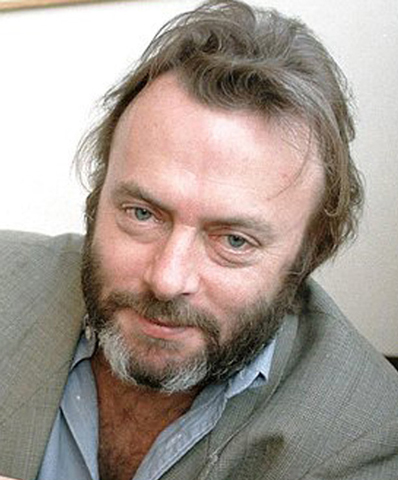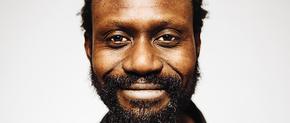The views expressed in our content reflect individual perspectives and do not represent the authoritative views of the Baha'i Faith.
I like atheists. Agnostics, too.
That may sound a tad strange, coming from someone who writes about the Baha’i Faith every day. Bear with me for a minute, and I’ll explain.
First of all, those who question the existence of God have always seemed pretty intelligent, at least to me. They’re usually the independent ones who don’t blindly accept tradition, or naively believe without careful consideration, or unthinkingly become members of a group just to be a member.
Second, I get it when people truly wonder about the mystical concept of a Supreme Being. I do, too, all the time. That mystery—an invisible, loving, creative, omnipotent, all-knowing Creator—really is hard to grasp. I don’t pretend to fully understand what the Baha’i writings say about God:
God in His Essence and in His own Self hath ever been unseen, inaccessible, and unknowable. – Baha’u’llah, Epistle to the Son of the Wolf, p. 118.
Third, in my experience atheists and agnostics have thought about God more than most people. I know, it’s a conundrum, but it’s true. Because they’ve taken the time to weigh the evidence and the arguments, they’ve actually gone on a spiritual search, and decided for themselves, which I find admirable. The writer Terry Pratchett said atheism and belief have a lot in common:
Indeed, a true atheist thinks of the gods constantly, albeit in terms of denial. Therefore, atheism is a form of belief. If the atheist truly did not believe, he or she would not bother to deny. – Feet of Clay.
So I understand when skeptics, especially the group of very publicly vocal philosophers and writers called the New Atheists, say that religion is toxic and deserves to be jettisoned. In case you’re unfamiliar with that group of thinkers, here’s a sampling:
The problem with religion, because it’s been sheltered from criticism, is that it allows people to believe en masse what only idiots or lunatics could believe in isolation. – Sam Harris
That which can be asserted without evidence, can be dismissed without evidence. – Christopher Hitchens.
The only position that leaves me with no cognitive dissonance is atheism. – Ayaan Hirsi Ali
I cannot know for certain but I think God is very improbable, and I live my life on the assumption that he is not there. – Richard Dawkins
You don’t get to advertise all the good that your religion does without first scrupulously subtracting all the harm it does and considering seriously the question of whether some other religion, or no religion at all, does better. – Daniel Dennett
You might be surprised to learn that in significant ways, the Baha’i teachings validate the important points some of these atheist thinkers make—and preceded them by a century or more in that thinking.
Baha’is believe in evidence and science; accept and encourage questioning; value the human intellect and urge its education; have no clergy or dogma; try to eradicate superstition and irrationality; and, like Daniel Dennett, believe that no religion is preferable to one that does harm:
Religion should unite all hearts and cause wars and disputes to vanish from the face of the earth, give birth to spirituality, and bring life and light to each heart. If religion becomes a cause of dislike, hatred and division, it were better to be without it, and to withdraw from such a religion would be a truly religious act. For it is clear that the purpose of a remedy is to cure; but if the remedy should only aggravate the complaint it had better be left alone. Any religion which is not a cause of love and unity is no religion. All the holy prophets were as doctors to the soul; they gave prescriptions for the healing of mankind; thus any remedy that causes disease does not come from the great and supreme Physician. – Abdu’l-Baha, Paris Talks, p. 129.
That’s the fourth unique Baha’i idea on this list of five ways to stop religious conflict:
4. If Your Faith Causes Hatred and Bloodshed, Find a More Peaceful Path.
Sound radical? Not from a Baha’i perspective. The Baha’i teachings view religion as a means toward love and unity, as a path to peace and global oneness, not as an end in itself:
A remedy is given to cure a disease, but if it only succeeds in aggravating the complaint, it is better to leave it alone. If religion is only to be a cause of disunion it had better not exist. – Abdu’l-Baha, Paris Talks, p. 122.
The religion of God is the cause of love, but if it is made to be the source of enmity and bloodshed, surely its absence is preferable to its existence; for then it becomes satanic, detrimental and an obstacle to the human world. – Abdu’l-Baha, The Promulgation of Universal Peace, p. 202.
Blind imitations and dogmatic observances are conducive to alienation and disagreement; they lead to bloodshed and destruction of the foundations of humanity. Therefore, the religionists of the world must lay aside these imitations and investigate the essential foundation or reality itself, which is not subject to change or transformation. This is the divine means of agreement and unification. – Abdu’l-Baha, The Promulgation of Universal Peace, p. 339.
Baha’is believe that religion is as religion does, that deeds are more important than words, and that true faith means actually bringing spiritual ideals into practice, both individually and socially.


















Comments
Sign in or create an account
Continue with Facebookor